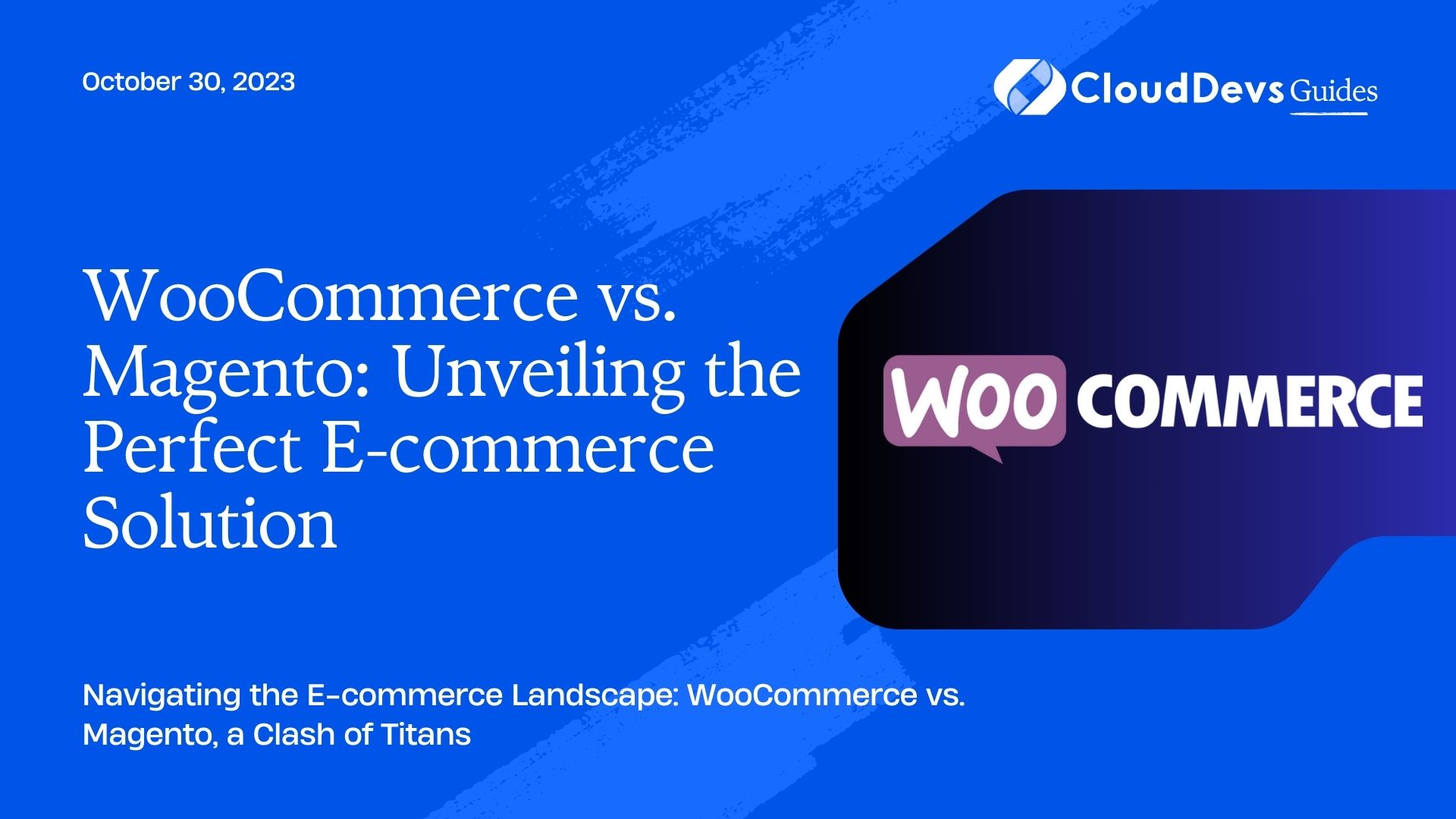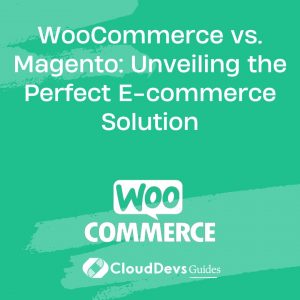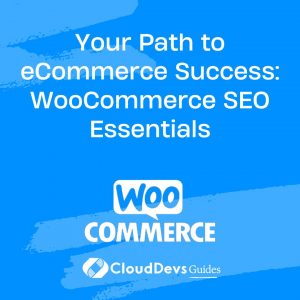WooCommerce vs. Magento: Unveiling the Perfect E-commerce Solution
When it comes to setting up an e-commerce store, choosing the right platform is a crucial decision. Two of the most popular options in the e-commerce world are WooCommerce and Magento. Both are powerful and feature-rich platforms, but they cater to different needs and have their own strengths and weaknesses. In this blog post, we will compare WooCommerce and Magento to help you make an informed decision for your online business.

WooCommerce: The WordPress E-commerce Plugin
WooCommerce is a popular e-commerce plugin for WordPress, the world’s most widely used content management system (CMS). It’s known for its user-friendly interface and seamless integration with WordPress, making it an excellent choice for small to medium-sized businesses, bloggers, and entrepreneurs looking to start an online store.
Key Features of WooCommerce
- Easy to Use: WooCommerce is designed with user-friendliness in mind. If you’re already familiar with WordPress, you’ll find it easy to set up and manage your online store using WooCommerce.
- Vast Ecosystem: With thousands of plugins and themes available, WooCommerce offers immense flexibility and customization options. You can tailor your online store to meet your specific requirements.
- Scalability: While WooCommerce is suitable for small businesses, it can also scale to handle larger e-commerce operations with the right hosting and extensions.
- Cost-effective: WooCommerce itself is free to use, but you may need to invest in hosting, premium themes, and extensions. However, it’s generally more budget-friendly compared to Magento.
- Community Support: The large WordPress community means you’ll find plenty of online resources, forums, and tutorials to help you with any questions or issues you encounter.
Examples of Successful WooCommerce Stores
- Allbirds: This eco-friendly shoe brand uses WooCommerce to power its online store, providing a seamless shopping experience for its customers.
- WooSkins: WooSkins specializes in creating premium WooCommerce themes and extensions, showcasing the flexibility and customization potential of the platform.
- Book Riot: An online bookstore and community, Book Riot uses WooCommerce to manage its extensive inventory of books and merchandise.
Magento: The E-commerce Powerhouse
Magento is a robust and highly customizable e-commerce platform that caters to businesses of all sizes. It’s known for its scalability, performance, and extensive feature set, making it a top choice for large enterprises and businesses with complex e-commerce needs.
Key Features of Magento
- Highly Customizable: Magento offers unparalleled flexibility when it comes to design and functionality. You can create a truly unique and tailored online store.
- Scalability: Designed with large-scale e-commerce in mind, Magento can handle a high volume of products, customers, and transactions without compromising performance.
- Advanced SEO: Magento comes with built-in SEO features, making it easier for your online store to rank well on search engines.
- B2B Capabilities: If your business primarily serves other businesses, Magento offers advanced B2B features for managing complex pricing, quoting, and ordering processes.
5.*Enterprise-Grade Security: Security is a top priority for Magento, making it a reliable choice for businesses that deal with sensitive customer data and payment information.
Examples of Successful Magento Stores
- Nike: The global sportswear giant relies on Magento to power its online store, handling the massive demand for its products.
- Coca-Cola: Even beverage giants like Coca-Cola use Magento to manage their e-commerce operations and provide a seamless online shopping experience.
- Ford: The automotive company Ford utilizes Magento to sell parts and accessories online, demonstrating its suitability for diverse industries.
Choosing the Right Platform: Factors to Consider
Now that we’ve explored the key features of WooCommerce and Magento, let’s delve into the factors you should consider when choosing between them:
1. Business Size and Growth Plans
– Choose WooCommerce if you’re a small to medium-sized business with plans for gradual growth. It’s cost-effective and easy to set up.
– Choose Magento if you’re a large enterprise with complex e-commerce requirements and a need for scalability. Magento can handle high traffic and extensive product catalogs.
2. Budget
– Choose WooCommerce if you have a limited budget. While some extensions and themes may have costs, overall, WooCommerce is more budget-friendly.
– Choose Magento if you have a larger budget to invest in a comprehensive e-commerce solution. Keep in mind that Magento’s licensing fees and development costs can be higher.
3. Technical Expertise
– Choose WooCommerce if you’re new to e-commerce and have limited technical expertise. The WordPress ecosystem is user-friendly and well-documented.
– Choose Magento if you have a team of developers or access to technical expertise. Customization and maintenance require more technical know-how.
4. Features and Functionality
– Choose WooCommerce if you need a straightforward online store with essential features. It’s suitable for selling physical and digital products, as well as services.
– Choose Magento if you have unique or complex e-commerce requirements, such as multi-store management, B2B functionality, or intricate product configurations.
5. Support and Community
– Choose WooCommerce if you prefer a platform with a vast user community, ensuring plenty of online resources and support options.
– Choose Magento if you need enterprise-level support and security, backed by Adobe (the company behind Magento).
Final Thoughts
In the WooCommerce vs. Magento showdown, there’s no one-size-fits-all answer. Your choice should align with your specific business needs and objectives. WooCommerce is an excellent choice for smaller businesses with budget constraints, while Magento shines for large enterprises with complex requirements. Take the time to assess your goals, budget, and technical capabilities to make an informed decision that will set your e-commerce venture up for success. Whether you opt for the flexibility of WooCommerce or the power of Magento, both platforms have the potential to create a thriving online store for your business.
Table of Contents







